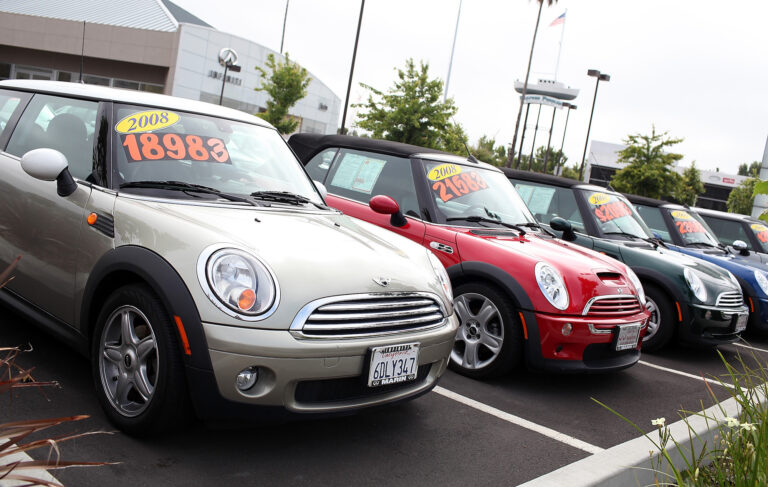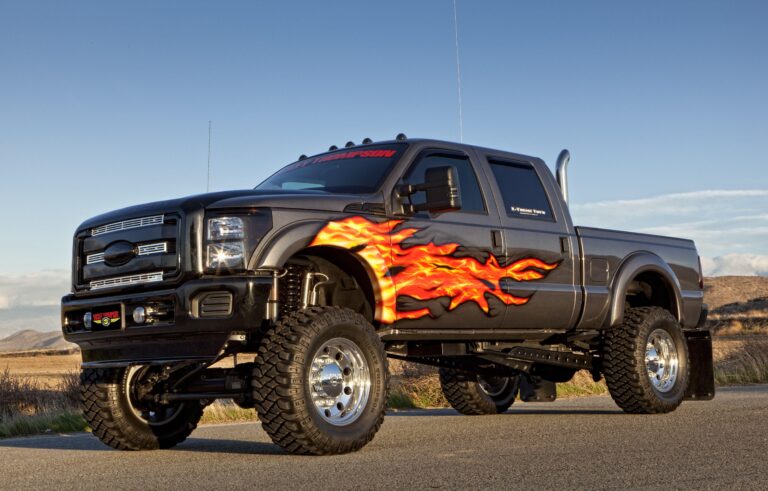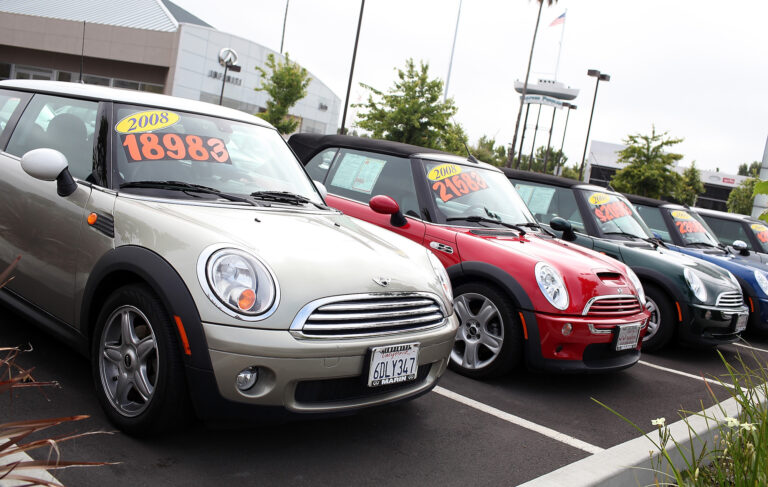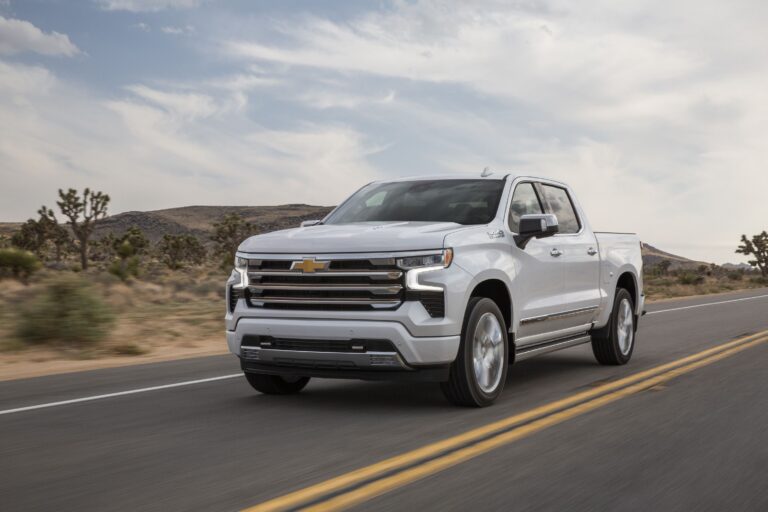Car Speaker Brands List: A Comprehensive Guide to Elevating Your In-Car Audio Experience
Car Speaker Brands List: A Comprehensive Guide to Elevating Your In-Car Audio Experience cars.truckstrend.com
For many, the car is more than just a mode of transport; it’s a personal sanctuary, a mobile office, or a concert hall on wheels. Yet, the often-overlooked Achilles’ heel of this experience is the factory-installed audio system. Bland, muddy, and lacking in detail, stock speakers rarely do justice to your favorite tunes or podcasts. This is where upgrading your car speakers comes in, transforming your daily commute into an immersive auditory journey.
Choosing the right car speaker brand is paramount to achieving the sound quality you desire. Not all speakers are created equal, and each brand often brings its unique philosophy, engineering prowess, and sonic signature to the table. From crisp highs and detailed mids to earth-shaking bass, the brand you select significantly impacts the clarity, power, and overall fidelity of your in-car audio. This comprehensive guide will delve into the world of car speaker brands, helping you navigate the options and make an informed decision to elevate your driving experience.
Car Speaker Brands List: A Comprehensive Guide to Elevating Your In-Car Audio Experience
The Foundation: Understanding Car Speaker Types
Before diving into specific brands, it’s crucial to understand the fundamental types of car speakers available. Your choice here will influence not only the sound quality but also the complexity of installation and the brands you might consider.
-
Coaxial (Full-Range) Speakers: These are the most common and easiest to install. A coaxial speaker integrates multiple audio drivers (typically a woofer for lows and a tweeter for highs, sometimes a mid-range) into a single unit. They are a direct replacement for most factory speakers, offering a significant upgrade in sound quality without extensive modifications. Coaxial speakers are a great starting point for those looking for a simple, cost-effective improvement.
-
Component Speakers: Designed for the audio enthusiast, component speaker systems separate the woofer, tweeter, and often a dedicated mid-range driver, along with an external crossover network. This separation allows for optimal placement of each driver, leading to superior sound staging, imaging, and overall clarity. The external crossovers precisely direct the correct frequencies to each driver, resulting in a more detailed and accurate sound reproduction. While they offer superior performance, component systems require more complex installation.

-
Subwoofers: Dedicated solely to reproducing low-frequency bass notes, subwoofers add depth, impact, and richness to your music that full-range speakers simply cannot provide. They are often housed in dedicated enclosures and require an external amplifier.

Amplifiers: While not speakers themselves, external amplifiers are vital for powering aftermarket speakers, especially component sets and subwoofers, to their full potential. They provide cleaner, more powerful audio signals than your car’s head unit, resulting in improved clarity, dynamic range, and volume without distortion.
Decoding Speaker Specifications: What to Look For Beyond the Brand Name
Beyond the allure of a well-known brand, understanding key speaker specifications is crucial for making an informed choice.
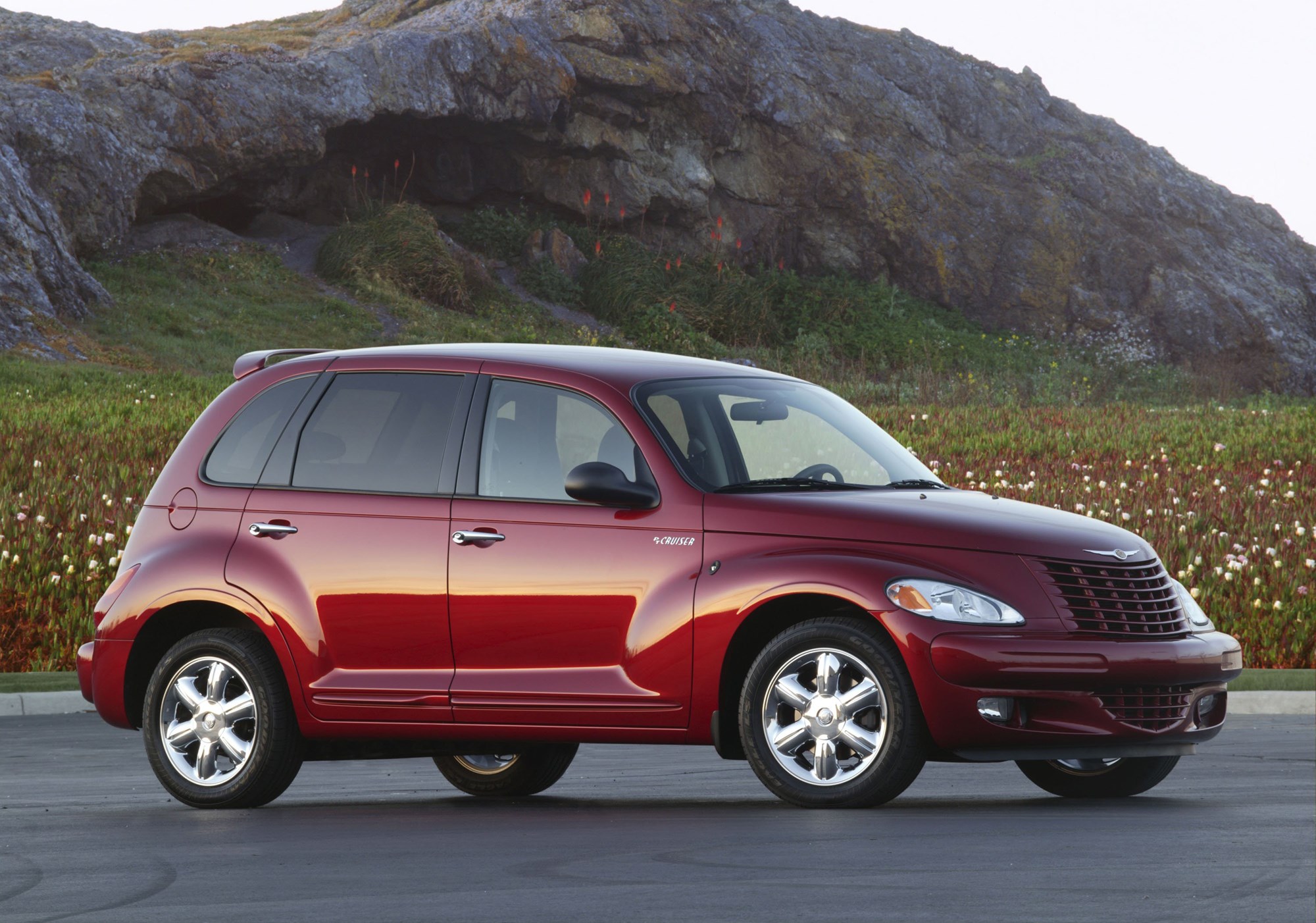
- Sound Quality: This is subjective, but generally refers to a speaker’s ability to reproduce audio accurately across the frequency spectrum – from deep bass (lows) to clear vocals (mids) and sparkling instruments (highs). Different brands excel in different areas.
- Power Handling (RMS vs. Peak): RMS (Root Mean Square) power is the continuous power a speaker can handle without damage. Peak power is the maximum power a speaker can handle for brief bursts. Always prioritize RMS power when matching speakers to an amplifier to ensure longevity and optimal performance.
- Sensitivity: Measured in decibels (dB) per watt at one meter (dB/W/m), sensitivity indicates how efficiently a speaker converts power into sound. Higher sensitivity means the speaker will play louder with less power, which is beneficial if you’re keeping your factory head unit.
- Impedance (Ohms): This is the electrical resistance of the speaker. Most car speakers are 4 ohms. It’s crucial to match the speaker’s impedance to your amplifier or head unit’s output capabilities to prevent damage and ensure optimal performance.
- Build Materials: The materials used for the speaker cone (e.g., polypropylene, paper, carbon fiber), surround (e.g., rubber, foam), and tweeter (e.g., silk, metal) significantly impact durability and sound characteristics. For instance, rubber surrounds offer better longevity than foam, and silk dome tweeters often produce a warmer sound than metal ones.
- Size & Fit: This is a practical but critical consideration. Speakers come in various standard sizes (e.g., 6.5-inch, 6×9-inch, 5.25-inch). Always measure your existing factory speakers’ dimensions and mounting depth to ensure the new speakers will fit without extensive modifications.
Navigating the Landscape: A Curated List of Top Car Speaker Brands
The car audio market is vast, with brands catering to every budget and sonic preference. Here’s a curated list, categorized to help you identify brands that align with your needs.
The Audiophile’s Choice (Premium Performance & Uncompromising Sound)
These brands are for listeners who prioritize exceptional sound fidelity, clarity, and detail above all else. They often come with a higher price tag but deliver an unparalleled listening experience.
- Focal (France): Renowned globally for their exquisite home and car audio speakers. Focal speakers are characterized by their exceptional clarity, precise imaging, and natural sound reproduction. They are high-end, often requiring dedicated amplification to truly shine.
- JL Audio (USA): A powerhouse in the car audio industry, JL Audio is celebrated for its incredibly powerful yet musical subwoofers, as well as their high-fidelity component sets. Their speakers offer a balanced sound signature with robust bass and clear highs.
- Hertz (Italy): Combining Italian craftsmanship with powerful, dynamic sound, Hertz speakers deliver strong bass, detailed mid-range, and clear, articulate highs. They are known for their high power handling and robust build quality.
- Morel (Israel): Morel specializes in producing speakers with a natural, warm, and highly detailed sound. Their use of soft dome tweeters often results in a smooth, non-fatiguing high-frequency response, making them excellent for nuanced listening.
- Audison (Italy): A sister brand to Hertz, Audison is at the forefront of high-end car audio, known for refined sound quality and advanced digital signal processing (DSP) integration in their systems. Their speakers offer exceptional clarity and dynamic range.
The Enthusiast’s Sweet Spot (Performance & Value)
These brands offer an excellent balance of performance, durability, and value, making them popular choices for a significant upgrade without breaking the bank.
- Alpine (Japan): A long-standing leader in car audio, Alpine offers a wide range of speakers known for their balanced sound, good power handling, and reliable performance. They provide clear highs and solid bass response.
- Pioneer (Japan): An industry giant, Pioneer offers a vast selection from budget-friendly coaxial speakers to high-performance component sets. They are known for clear, crisp sound and good bass, making them a versatile choice for many users.
- Kenwood (Japan): Similar to Pioneer, Kenwood speakers are good all-around performers, often offering great value for money. They provide a noticeable upgrade over factory systems with balanced sound.
- Rockford Fosgate (USA): Synonymous with powerful bass and high-output systems, Rockford Fosgate speakers are built for impact. They are durable and designed to handle significant power, making them a favorite for those who like their music loud and clear.
- Kicker (USA): Known for their robust, hard-hitting bass and clear mids/highs, Kicker speakers are popular among listeners who prefer a powerful, energetic sound. They offer excellent value for their performance.
- Infinity (USA): Part of Harman International (along with JBL and Harman Kardon), Infinity speakers are known for their articulate sound and patented Plus One+ cone technology, which provides increased cone surface area for more bass output.
- JBL (USA): Another strong brand under Harman, JBL offers strong, clear sound with good bass response across its product lines. They provide great value and are widely available, making them a popular choice for reliable performance.
- Polk Audio (USA): Polk Audio car speakers offer an excellent balance of sound quality, durability, and affordability. They are known for their clean sound and often provide marine-grade options for boats and off-road vehicles.
The Budget-Conscious Upgrade (Entry-Level & Value)
These brands provide affordable solutions for those looking for a basic upgrade over their factory speakers without a significant investment. While they may not offer the same fidelity as premium brands, they deliver a noticeable improvement.
- BOSS Audio Systems (USA): Offers highly affordable options, perfect for those looking for a basic, economical upgrade to their factory system.
- Pyle (USA): Another budget-friendly brand, Pyle provides simple, inexpensive replacements for stock speakers, delivering improved volume and clarity for the price.
- Skar Audio (USA): While Skar Audio also has higher-end offerings, many of their entry-level speakers and subwoofers provide surprisingly strong bass and decent clarity for their price point, making them popular for budget-conscious bass enthusiasts.
Making the Right Choice: Practical Advice for Your Purchase
Selecting the perfect car speaker brand involves more than just picking a name off a list. Consider these practical steps:
- Define Your Budget: This is the most critical first step. It immediately narrows down your options and helps you focus on brands within your price range.
- Assess Your Listening Style: Do you crave booming bass that rattles the rearview mirror, crystal-clear vocals for podcasts, or a balanced sound for all genres? Your preference will guide you towards brands known for those characteristics.
- Consider Your Vehicle: Speaker sizes, mounting depth, and the acoustic environment of your car matter. Use online fit guides (like Crutchfield’s) to ensure compatibility with your vehicle model.
- Research and Read Reviews: Look for unbiased user reviews and professional opinions. Pay attention to consistent feedback regarding sound quality, durability, and installation experiences.
- Demo if Possible: If you have local car audio stores, try to listen to different brands and speaker types in a demo setup. Hearing them firsthand can be invaluable.
- DIY vs. Professional Installation: While coaxial speakers are often a straightforward DIY project, component systems, subwoofers, and amplifier installations often benefit from professional expertise to ensure proper wiring, tuning, and optimal sound performance.
Elevating Your Sound: Beyond Speaker Replacement
Replacing your speakers is a fantastic start, but to truly unlock the potential of your new audio system, consider these additional upgrades:
- Sound Deadening: Applying sound-deadening material to your car doors and other panels reduces road noise and vibrations. This allows your speakers to perform more efficiently and accurately, resulting in a cleaner, more impactful sound.
- Adding an Amplifier: Even if your new speakers have good sensitivity, an external amplifier will provide them with clean, ample power, dramatically improving dynamic range, volume, and overall clarity by reducing distortion.
- Digital Sound Processor (DSP): For the ultimate in sound customization, a DSP allows for precise tuning, equalization, time alignment, and crossover adjustments, enabling you to tailor the sound exactly to your vehicle’s acoustics and your personal preferences.
- Proper Tuning: Once installed, take the time (or have a professional do it) to properly tune your system. Adjusting equalizer settings, crossover points, and time alignment can make a world of difference in the final sound quality.
Challenges and Solutions:
- Compatibility Issues: Always double-check speaker size, mounting depth, and impedance against your vehicle’s specifications and your existing head unit/amplifier. Online fit guides are your best friend here.
- Installation Difficulty: Modern cars can have complex wiring and tight spaces. If you’re uncomfortable with wiring or disassembling interior panels, professional installation is a worthwhile investment.
- Budget Creep: It’s easy to get carried away. Stick to your initial budget, prioritize components (speakers first, then amplifier, then subwoofer), or plan for a phased upgrade over time.
Car Speaker Brands: Estimated Price Range Table
This table provides a general idea of where popular car speaker brands fall in terms of typical price range for a pair of coaxial or component speakers. Prices can vary significantly based on speaker size, series (entry-level vs. high-end), and retailer.
| Brand Name | Typical Product Category | Estimated Price Range (Pair of Speakers) | Key Feature / Specialty |
|---|---|---|---|
| Focal | Component, Coaxial | $300 – $2000+ | Unrivaled clarity, precise imaging, natural sound |
| JL Audio | Component, Coaxial, Subwoofers | $250 – $1500+ | High-fidelity sound, powerful & musical bass |
| Hertz | Component, Coaxial | $200 – $1000+ | Dynamic, powerful sound, excellent bass, Italian craftsmanship |
| Morel | Component, Coaxial | $250 – $1500+ | Warm, natural sound, highly detailed, smooth highs |
| Audison | Component | $400 – $2000+ | Refined sound quality, advanced DSP integration |
| Alpine | Component, Coaxial | $100 – $500 | Balanced sound, good power handling, reliable performance |
| Pioneer | Component, Coaxial | $60 – $400 | Clear, crisp sound, wide range of options, good value |
| Kenwood | Component, Coaxial | $50 – $350 | Good all-around performers, excellent value |
| Rockford Fosgate | Component, Coaxial, Subwoofers | $80 – $600 | Powerful bass, high output, durable, impactful sound |
| Kicker | Component, Coaxial, Subwoofers | $70 – $500 | Hard-hitting bass, loud and clear sound, robust build |
| Infinity | Component, Coaxial | $80 – $400 | Articulate sound, patented Plus One+ cones for more bass |
| JBL | Component, Coaxial | $70 – $350 | Strong, clear sound, good bass, great value |
| Polk Audio | Component, Coaxial | $70 – $350 | Clean sound, good balance of quality and affordability |
| BOSS Audio Systems | Coaxial | $30 – $100 | Ultra-affordable factory upgrade, basic improvement |
| Pyle | Coaxial | $20 – $80 | Budget-friendly replacement, simple factory upgrade |
| Skar Audio | Coaxial, Component, Subwoofers | $50 – $250 (entry-mid) | Strong bass for the price, good value for bass enthusiasts |
Note: Prices are estimated for a pair of speakers (coaxial or component) and can fluctuate based on specific model, retailer, sales, and regional differences. High-end subwoofers and amplifiers from these brands would typically fall into higher price brackets.
Frequently Asked Questions (FAQ)
Q1: What’s the main difference between coaxial and component speakers?
A1: Coaxial speakers combine all drivers (woofer, tweeter) into one unit for simpler installation. Component speakers separate the woofer and tweeter, using an external crossover, allowing for better sound staging and clarity but requiring more complex installation.
Q2: Do I need an amplifier if I upgrade my car speakers?
A2: For most aftermarket speakers, especially component sets, an external amplifier is highly recommended. It provides cleaner, more powerful audio signals than your car’s factory head unit, allowing the speakers to perform to their full potential without distortion and significantly improving sound quality.
Q3: Can I just replace my factory speakers with new ones?
A3: Yes, for many vehicles, you can directly replace factory speakers with aftermarket coaxial speakers of the same size. However, for optimal sound, matching the speaker’s impedance and sensitivity to your head unit is important, and adding an amplifier is often beneficial.
Q4: What is RMS power, and why is it important?
A4: RMS (Root Mean Square) power is the continuous power a speaker can handle without sustaining damage. It’s the most accurate indicator of a speaker’s actual power handling capability, unlike "peak power." When pairing speakers with an amplifier, always match the amplifier’s RMS output to the speaker’s RMS rating.
Q5: Is Brand X better than Brand Y?
A5: "Better" is subjective and depends on your personal listening preferences, budget, and vehicle. While some brands are known for specific characteristics (e.g., Focal for clarity, Rockford Fosgate for bass), the best brand for you is the one that meets your specific needs and sounds best to your ears. Research reviews, compare specifications, and ideally, listen to demos.
Q6: Where should I buy car speakers?
A6: Reputable car audio retailers (online and brick-and-mortar) are the best places. Online stores like Crutchfield.com are excellent for their fitment guides and customer support. Local car audio shops can offer personalized advice and professional installation services.
Conclusion
Upgrading your car speakers is one of the most impactful improvements you can make to your in-car experience. By understanding the different types of speakers, key specifications, and the diverse landscape of car speaker brands, you are well-equipped to make an informed decision. Whether you’re an audiophile seeking the pinnacle of sound reproduction or simply looking for a significant upgrade from your factory system, there’s a brand and a speaker system out there for you. Remember to consider your budget, listening preferences, and vehicle compatibility, and don’t hesitate to seek professional advice or installation when needed. With the right car speaker brand, every drive can become a private concert, making your time on the road truly enjoyable.

